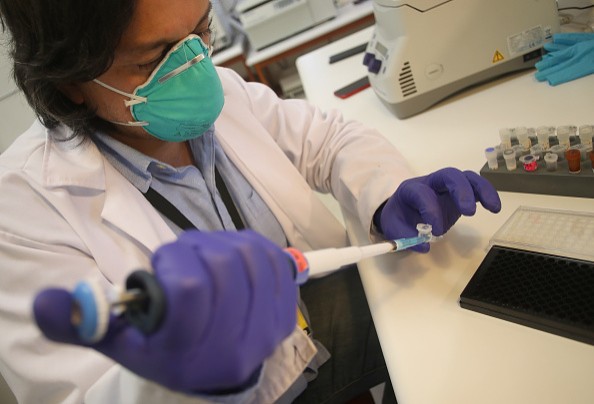Boy With Rare COVID-19-Related Disease Makes Remarkable Recovery
A boy miraculously recovered from a rare inflammatory disease linked to COVID-19 and will be discharged from the hospital this week.
At Monash Children's Hospital in Melbourne, a nine-year-old boy was admitted to the intensive care unit with a severe immune response condition known as the paediatric multisystem inflammatory syndrome (PIMS-TS), as per The Age.
The boy was one of the first Australian children to contain the condition. According to the doctors, there have been a tiny number of confirmed PIMS-TS cases in the country, with a few children who are still under investigation.
The boy was first admitted in another Melbourne hospital last week after experiencing fever, abdominal pain, and a red rash.
The doctors, who examined the child, diagnosed him with the syndrome. He was then transferred to Monash, where he was given proper treatment with intravenous antibodies. Steroids were also used to dampen his immune response and blood thinner medication to avoid the risk of blood clots.
Professor Jim Buttery, the hospital's head of infection and immunity, said: "He's made an excellent recovery."
Buttery added that the hospital, where the boy was first presented, made an excellent and immediate diagnosis; thus, the child was able to receive therapy early. "He's likely to be going home this week, which is great news," Buttery said.

The PIMS-TS is a rare illness that involves swelling of blood vessels in the body. The syndrome can trigger a temperature, swollen glands in the neck, and rash.
Children have largely been spared from the worst health outcomes of COVID-19. But in April this year, a cluster of PIMS-TS cases among children in Britain prompted an urgent alert to doctors worldwide.
After developing the disease, there are at least three children across the world that have died.
The PIMS-TS is similar to Kawasaki disease that has the same symptoms of fever and peeling skin. However, it is not yet verified if PIMS-TS is a classic Kawasaki disease. The condition commonly occurs in early adolescence or primary-school-aged children.
The Lancet published a recent study that detailed 78 cases reported by paediatric units in Britain in April and May. The findings indicated that boys and those from ethnic minorities were over-presented. The average age of affected children was 11.
After two to six weeks of contracting COVID-19, the PIMS-TS appears to children. The disease has also been found in Switzerland, Spain, and France.
A recent Latin Post report noted that PIMS is known as a multisystem inflammatory syndrome or (MIS-C), a new and mysterious disease that affects hundreds of children worldwide. The disease could develop after contracting the coronavirus.
The light case of COVID-19 does not guarantee that the condition won't be very serious or fatal.
A neonatologist from the University of Texas Health Science Centre, Alvaro Moreira, told the UT Health that children do not need to exhibit upper respiratory symptoms of COVID-19 to develop MIS-C, which is frightening.
PIMS-TS or MIS-C causes severe inflammation in several parts of the body, including lungs, heart, brain, kidneys, eyes, skin, etc. The amount of the inflammation in PIMS-TS is worse than the Kawasaki disease, as per Moreira.
Check these out:
J&J Recruits 20,000 People in Latin America for the COVID-19 Vaccine Trials
Vitamin D Deficiency Linked to COVID-19 Risk, New Study Finds
Subscribe to Latin Post!
Sign up for our free newsletter for the Latest coverage!
© 2025 Latin Post. All rights reserved. Do not reproduce without permission.














